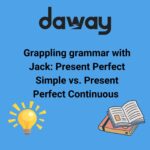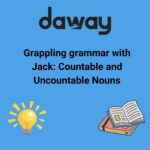State verbs are verbs that are related to thoughts and opinions (states of being) rather than verbs that relate to an action, also known as dynamic verbs. In general, these verbs are used to relate to elements like emotions, senses, beliefs, opinions, possessions, and states of being. Here is a list of some common state verbs:
- to be ser/estar
- to have tener
- to own poseer
- to agree/disagree estar/no estar de acuerdo
- to remember recordar
- to guess adivinar
- to imagine imaginar
- to feel sentirse
- to hear oír
- to smell oler
- to know saber
- to care cuidar
- to deserve merecer
- to prefer preferir
- to taste saborear
- to want querer
- to wish ojalá
- to mind importar
- to like gustar
- to love encantar
- to hate odiar
- to understand entender
Here are some common examples of sentences with state verbs:
Be (am, is, are, was, were, etc.):
- He is a teacher. Él es un profesor
- She was happy. Ella era feliz
- They are friends. Ellos son amigos
Like:
- I like chocolate. Me gusta el chocolate
- She likes reading. Le gusta leer
Love:
- They love each other. Se aman
- He loves playing the guitar. Le encanta tocar la guitarra
Hate:
- She hates spiders. Ella odia las arañas
- We hate waiting. Odiamos esperar
Know:
- I know the answer. Yo sé la respuesta
- She knows how to swim. Ella sabe cómo nadar
Understand:
- He understands the situation. Él entiende la situación
- They don't understand the question. No entienden la pregunta
Want:
- She wants a new car. Ella quiere un coche nuevo
- We want to go on vacation. Queremos ir de vacaciones
State verbs are generally not used in continuous or progressive forms (e.g., "I am knowing" Estoy sabiendo or "He is belonging" Él está sabiendo). Instead, they are typically used in simple tenses. However, there are some cases where a verb can function as both a state verb and a dynamic verb, depending on the context. For example, "have" can be a state verb when expressing possession ("I have a car" Tengo un coche) and a dynamic verb when indicating actions like experiencing something ("I am having a good time" Me lo estoy pasando bien).
I hope that helps to explain the use of of state verbs to you. If you want to continue studying state verbs, take a look at the activities in the PDF of this post here.



